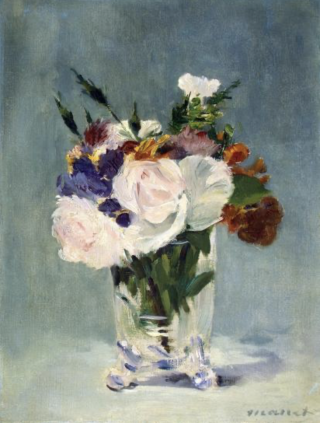Loneliness
You Can Be Alone Without Being Lonely
A Personal Perspective: You can learn to turn loneliness into “sweet solitude.”
Posted March 29, 2023 Reviewed by Davia Sills
Key points
- Being alone in and of itself is neither positive nor negative.
- Longing to get what you can’t control adds a second layer of suffering to already difficult circumstances.
- It’s possible to turn the pain of loneliness into the glory of solitude, especially if you have self-compassion at the ready.

It's been over 20 years since chronic illness (including chronic pain) forced me to leave my beloved teaching profession. I often say that I had to trade the classroom for the bedroom. For the first few years, I was so lonely that it was often hard to distinguish between illness and loneliness.
The words of Paul Tillich
As so often happens in life, the words of one person went straight to my heart, and I began to change. It happened when a friend sent me this quotation from theologian Paul Tillich:
Language...has created the word “loneliness” to express the pain of being alone. And it has created the word “solitude” to express the glory of being alone.
I knew the pain of being alone but had never experienced the glory of solitude. Yet, Tillich's words planted a seed. Over the next few weeks, I came to see that being alone in and of itself was neither positive nor negative. It was simply a fact that described many people's lives, including mine. Could I find a way to experience being alone as glorious… or even faintly sweet, for starters?
Help from the Buddha
As I often do when I'm looking for help, I turned to the Buddha's teachings. I thought about his first and second noble truths—how we make life harder for ourselves when we spend our time longing for circumstances over which we have no control to be other than they are. Here I was, longing to get my pre-illness life back. But I couldn't; I was too sick.
This constant longing was adding a second layer of suffering to my illness. This made me feel worse, both mentally and physically. (Stress is felt in the body as well as the mind.)
If that longing was making me feel worse, was there an alternative? Thinking of Tillich's "glory of being alone," I decided to investigate what I might like about being alone. I figured there had to be one or two things! I was surprised at the length of my list:
- No one was making demands on me.
- The quiet soothed my body because it helped alleviate the intensity of my symptoms.
- My power of observation was heightened. I noticed things I'd paid little attention to before, such as the sound of rain on the pavement and, in autumn, the intense red on the leaves of the ash tree outside my window.
- I was more productive when I was alone because I could follow a train of thought without interruption, especially when I was trying to write. (My illness can make concentration difficult.)
- I could let my body dictate the rhythm of the day—when to nap, eat, write or embroider, etc.
- When I went out into the world, it felt special, as if I was seeing everything for the first time with new eyes.
Turning the pain of loneliness into the joy of solitude
Once I paid attention to what I liked about being alone, more and more, solitude became pleasant and, occasionally, joyful. I believe it's wise to think in terms of baby steps, meaning not going for Tillich's glory right away, which could be too hard to attain but, instead, starting with a little bit of joy…and then a bit more.
If you're feeling lonely, I encourage you to make a list like mine. I'm confident you'll find some positives that come from a life of solitude. Include things that might sound trivial, like getting to choose what TV show to watch. When you're alone, things you might consider trivial become important and valid considerations.
Caregivers can be lonely, too. Suddenly, they're cut off from the life they knew, losing both the company of others and the company, out in the world, of their chronically ill loved one. If you're a caregiver, I hope you'll make a list like I did. It may help to alleviate your loneliness.
When loneliness makes an appearance, cultivate self-compassion.
Although I'm doing better at being alone, I do still get lonely sometimes. When Tillich's "pain of being alone" overtakes me, I don't fight it. Fighting how I feel adds a second layer of emotional pain to the pain of loneliness I already feel.
Instead, I direct compassion toward myself, and I strongly encourage you to do the same. I've found that the best way to cultivate self-compassion is to think of some phrases that speak directly to the difficulty I'm facing. So, I might say to myself: "It's hard to be alone when I want to be with my friends," or "It's tough to feel as if I'm missing all the fun."
Directing compassion at yourself tells you that you care about the emotional pain of the loneliness that you're feeling at the moment. This softens that loneliness and makes it easier to bear until it passes out of your mind. Loneliness, like all mental states, comes and goes. It's painful now, but it will pass, and perhaps a bit of the joy of solitude will take its place.
Having lost my profession but having, at last, found a measure of joy in the new life I have, I thought of this haiku by the 17th-century Japanese poet, Mizula Masahide: "My barn having burned down, I can now see the moon."
My book How to Wake Up: A Buddhist-Inspired Guide to Navigating Joy and Sorrow includes a practice specifically designed to help ease the pain of loneliness.
For more, see 10 Quotations and Reflections on Loneliness.




